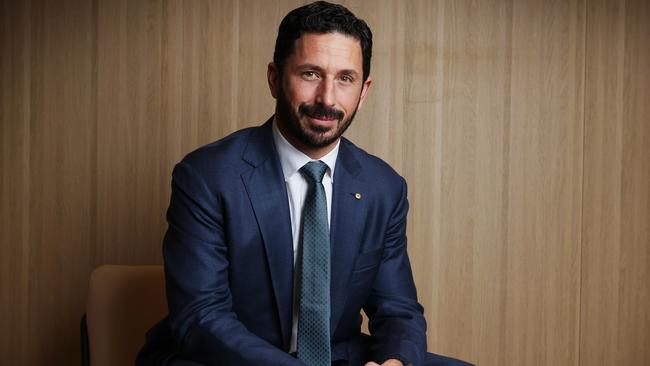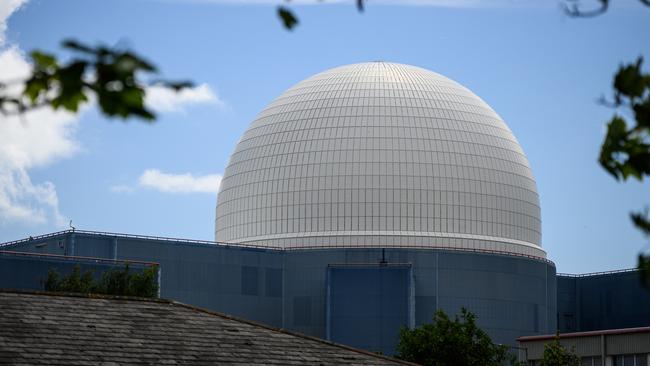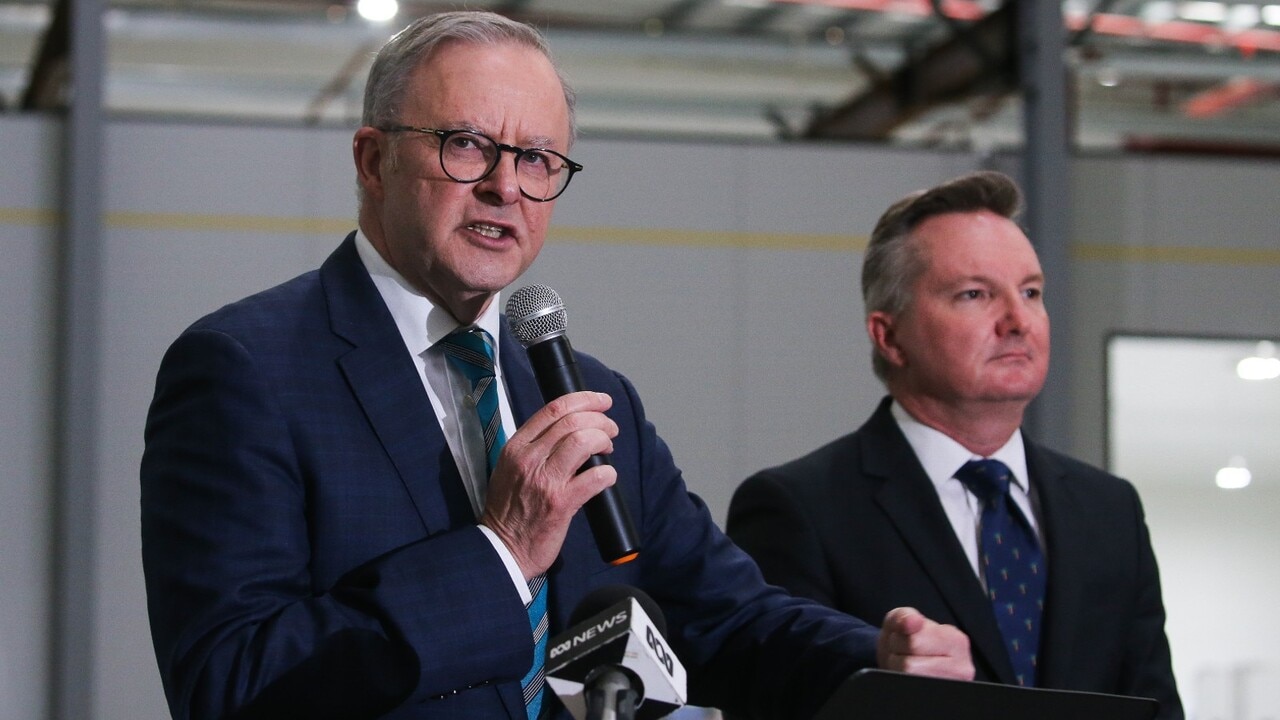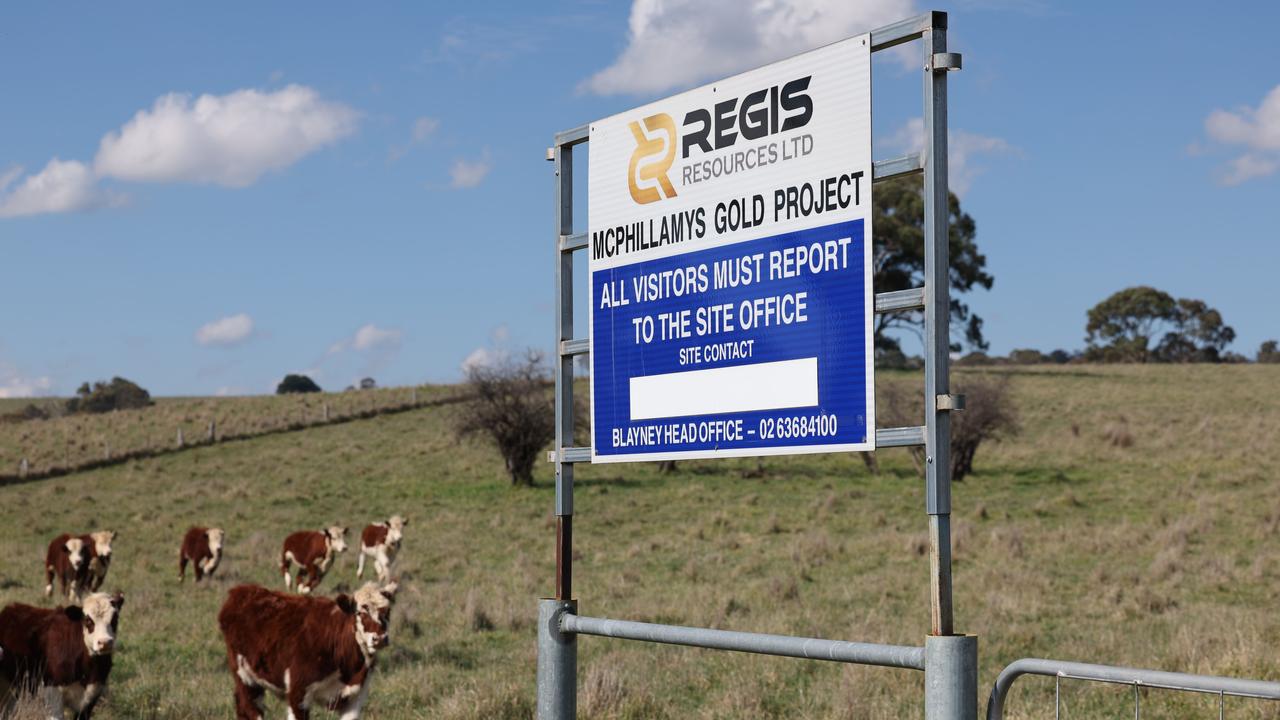Seven Group boss Ryan Stokes backs free power incentives to live next to nuclear plants
Free electricity for living next to a nuclear power plant could be one way of building community support for the technology, Seven Group boss Ryan Stokes says.

Business
Don't miss out on the headlines from Business. Followed categories will be added to My News.
Ryan Stokes, the son of billionaire Kerry Stokes, said people living near nuclear power plants could be offered incentives such as free electricity to build community support for the energy source backed by the Coalition.
Mr Stokes, who has backed the role gas will play in an energy transition through Seven’s stake in Beach Energy, said attitudes towards nuclear energy had shifted over the past decade.
The Seven Group chief executive told a business breakfast in Perth on Thursday that people living near nuclear plants could be offered incentives.
“To deal with the nimbyism, that’s easy … you can find ways to incentivise people to want to live around a nuclear power environment where they get a benefit – free energy, free power, or whatever the mechanism,” he said.
“Nuclear is a carbon-free power source, so it makes sense to be talking about that as we look to reduce carbon emissions.”
Peter Dutton has identified seven potential sites for nuclear power plants, including the town of Collie in Western Australia, where Seven’s key Westrac mining machinery business has a major training centre.
The Opposition Leader visited Collie last Friday to talk about his plans with the local shire council and other community leaders.
“I do think the fact that you’ve had cities pushing to try and get the investment associated with the nuclear sub program (AUKUS) just reinforces that community attitudes have changed,” Mr Stokes told The Australian.
“The reality is we have seen the continued investment in nuclear as part of the energy mix elsewhere around the world. I think we’ve moved forward in that ability to have the discussion.”
WA’s Labor government has vowed to shut down Collie’s coal-fired power stations by 2030 under its emissions reduction plans.

Mr Stokes called for a more sensible and properly costed debate around the opposition’s nuclear energy vision and its merits as an alternative to wind and solar farms.
“We’re not having sensible discussion on the true economics (of the energy transition),” he said. “Yes, renewables are going to play a big role in the future, but no one can possibly believe it’s free. There’s no such thing as free lunch, no such thing as free energy, just like there’s no pot of gold at the end of the rainbow.”
The Seven Group boss blasted government policy settings on industrial relations and the proliferation of green tape.
He also took a swipe at the Reserve Bank and its leaders, blaming current monetary policy and a conservative wait-and-see on interest rate cuts for sluggish GDP growth.
Seven Group represents a barometer of economic activity and the strength of the economy through its diversified portfolio of assets across mining machinery and the construction and infrastructure sectors, as well as in energy and the media.
Mr Stokes hit out at various policies across state and federal government that he said were a threat to Australia’s prosperity and a barrier to increasing productivity. “We need a much greater focus on productivity from both state and federal governments. The increase in regulatory oversight and green tape is deeply concerning,” he said.

Mr Stokes said governments and bureaucrats had gone too far in piling on red tape, and he labelled the Albanese government’s industrial relations as unhelpful. “From a regulatory perspective, there seems to be an imbalance with a focus on avoiding and eliminating risk without appreciating the associated costs of compliance.
“Among these risks, the most significant concern is the excessive layering of green tape, particularly at the federal level.
“Government decisions are disconnected from broader consideration of economic value, total contribution to the country and global competitiveness. The current approach is stifling our economic outlook and squandering our economic potential.”
Mr Stokes said the WA government, which this month said it would cut green tape by leaving greenhouse gas assessments of major projects to the commonwealth, was on the right track in taking a whole-of-government approach to approvals.
As the RBA and the Albanese government walk a fine line on interest rates and inflation, Mr Stokes backed migration and spending on infrastructure projects.
Seven Group has bet big on construction and infrastructure through its Coates Hire business and after spending $1.9bn to buy cement and asphalt group Boral.
Mr Stokes acknowledged the RBA and its governor, Michele Bullock, faced tough choices on interest rates but said leadership was important. “The constricted and inflationary impact of higher rates and lag effect of monetary policy suggest they should act in line with, or ahead of, the data, not after. A true test of leadership is knowing when to act, which is often in advance,” he said.
More Coverage
Originally published as Seven Group boss Ryan Stokes backs free power incentives to live next to nuclear plants




